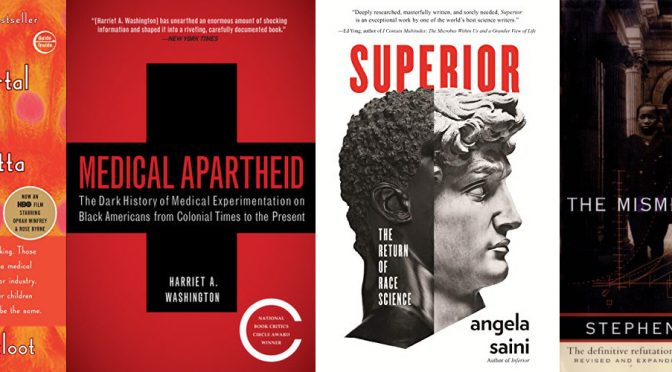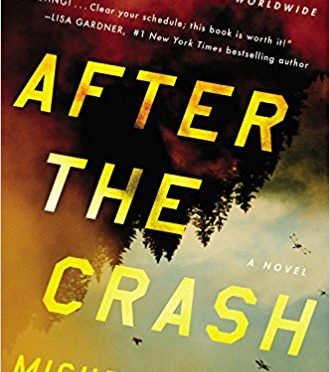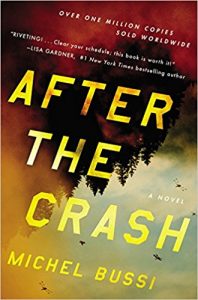When I originally began writing this – my next article for the Insight – it was going to be about things to read during a pandemic. George Floyd hadn’t been murdered yet. Protests hadn’t begun. And originally, I was going to put an extra section at the beginning of my article on racism in science and medicine.
That’s not enough; this topic really needs its own article and more. Speaking here as a white person, I can’t stress enough how critical it is for people like me to self-educate and do some thorough self-examination, and this article meant to be a point from which people can start.
Racism is endemic in our society, and it’s endemic in our sciences. It’s something that the scientific community has passively accepted and ignored for years, and it’s high past time to end that. If you’re new to this, welcome! Reading about racism is a great way to open your mind and determine where your own biases lie. It’s also a great way to keep yourself moving and thinking if you feel you’ve hit a standstill in your progress on this important and evolving topic. Identifying and uprooting biases and racism is a continuous learning process, one that I’m committed to being better at.
The title of each book on this list is linked to The Frugal Bookstore, Boston’s only Black-owned independent bookstore, where possible. Please join me in picking one (or more!) to read, and let’s start educating ourselves and doing better!
The Immortal Life of Henrietta Lacks (Rebecca Skloot)
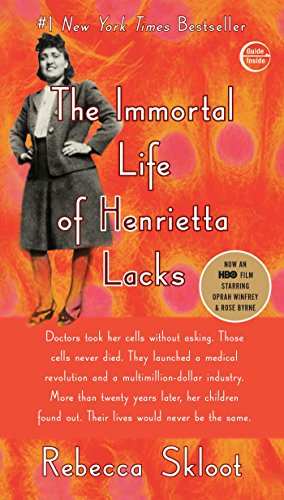
The scientist that obtained Henrietta’s cells did so without her consent. More than 20 years after her death in 1951, her family finally learned the truth: that scientists had been using her cells for years, that people had made a lot of money from discoveries using those cells, and that they themselves never saw any of the profits.
Most students in the biological sciences are familiar with HeLa cells. Here, Skloot presents the reader with the story of Henrietta Lacks herself, as well as the results of race exploitation in scientific discovery. If you have a few hours to spare, check out the 2017 movie adaptation, featuring Renée Elise Goldsberry (of Hamilton fame) as Henrietta Lacks and Oprah Winfrey as Deborah Lacks.
Medical Apartheid: The Dark History of Medical Experimentation on Black Americans from Colonial Times to the Present (Harriet A. Washington)
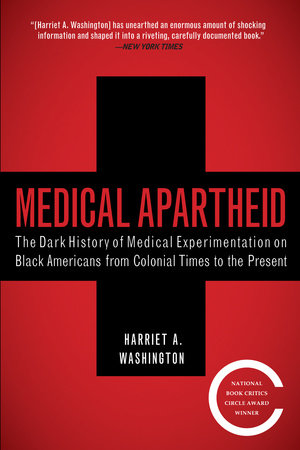
The story of Henrietta Lacks is the tip of the iceberg when it comes to the history of exploiting African Americans for medical and scientific progress. It starts long before that, at least as far back as the 17th century. Medical Apartheid presents the first comprehensive history of medical experimentation on African Americans.
This is going to be an uncomfortable book to read. What we now think of as racism in the medical system – racial disparities in access to health care, morbidity, and mortality rates – began with horrific and nonconsensual experiments (a quick Google search on James Marion Sims, the so-called “father of modern gynecology” should do the trick, for anyone curious). And while we have made much progress in that regard, there is so much more left to be done.
Already read this one? Check out one of Washington’s other books on the intersection of race and medicine: A Terrible Thing to Waste details environmental racism and its contribution to racial disparities in disease.
Superior: The Return of Race Science (Angela Saini)

For many white people, the story of overt racism in science may end with the end of World War II and the Holocaust, when people realized the consequences (putting it quite lightly) of the mass implementation of eugenics. But science did not truly let go of racism. Society hadn’t (and still hasn’t) abandoned the idea. It just took on an even more insidious nature.
Superior covers racism throughout known history. It is a book exposing the way scientists cling to an idea of race as a biological truth, as something that is encoded in our genes. This is a book that reveals the propensity of science to look for genetic differences in races as a convenient way of explaining away a difference in disease risk, poverty, and other things, when so much more goes into an individual than genetics.
The Mismeasure of Man (Stephen Jay Gould)
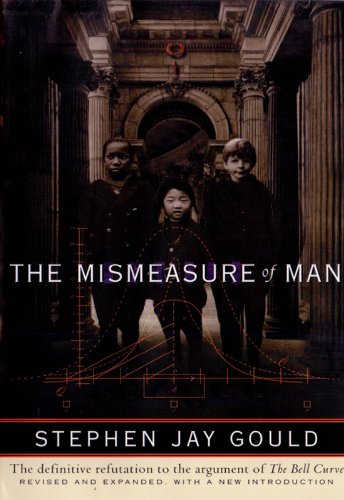
And there is much more to an individual than genetics. Published in 1981, The Mismeasure of Man systematically dismantles the idea that differences between groups of people (such as races) comes from genetics, a malpractice often referred to as biological determinism.
While Gould received great reviews in the popular press, the scientific community gave him the cold shoulder with claims of historical inaccuracy and political bias.
We all have a lot of work ahead of us to successfully strip our communities of racism. The above works touch only on the highly visible aspects of racism in science; microaggressions and other vastly overlooked racist practices are yet another area in which the sciences need to get a whole lot smarter. It’s not going to happen overnight, but it does need to happen. If you’re looking for more resources, please consult this #STEMforBLM Resource List. It contains more books on racism in science, as well as links to general resource lists (which contain titles like How to Be an Antiracist by Ibram X. Kendi, White Fragility by Robin J. Diangelo, and Between the World and Me by Ta-Nehisi Coates).
Books may not be everyone’s speed, but there are plenty of podcasts to check out if that’s more your style. There are two episodes of NPR’s Short Wave, a podcast on the science behind various news headlines, that might be particularly interesting. “Coronavirus and Racism are Dual Public Health Emergencies” details how systemic racism causes health disparities, such as during the Coronavirus pandemic. In “Science Is for Everyone – Until It’s Not” Brandon Taylor tells his heartbreaking story of why he had to leave science – because of how his fellow scientists treated him, as a Black person.
Which book will you be reading? Have you read any of these, and if so, what did you think?

